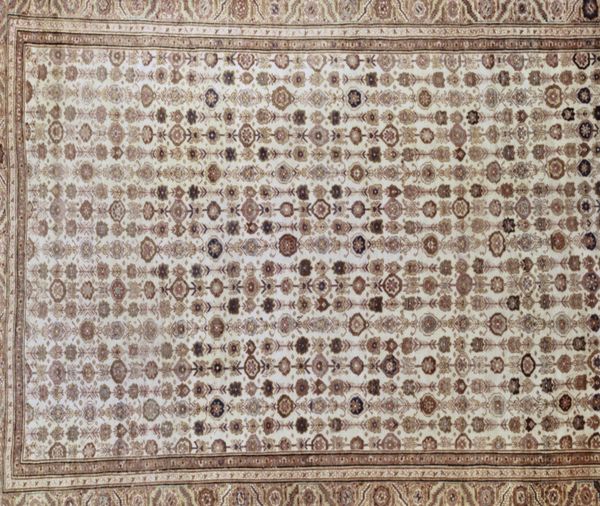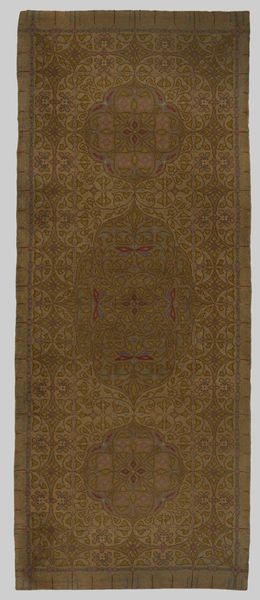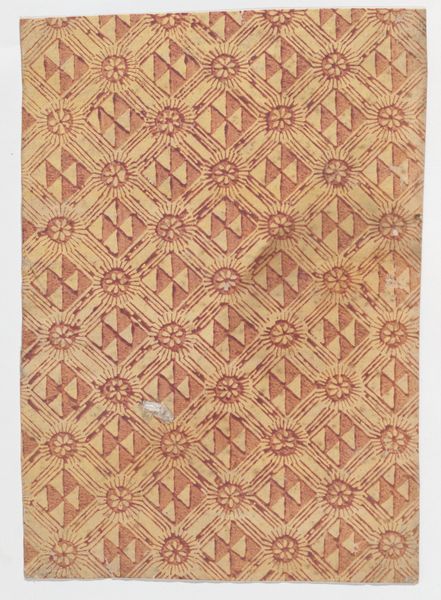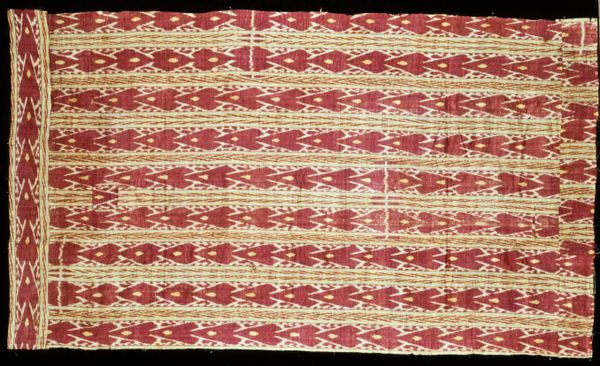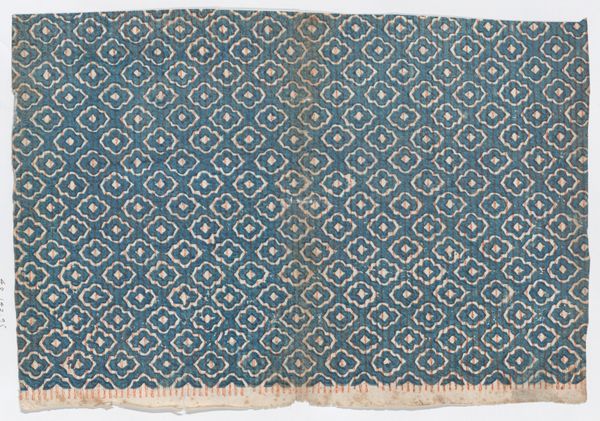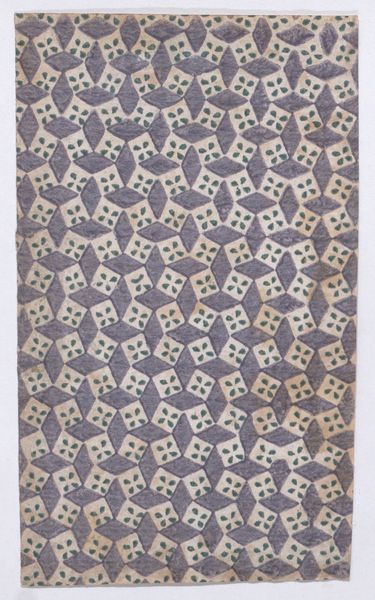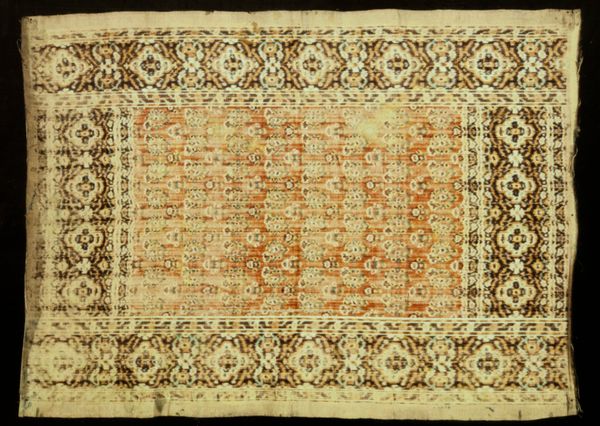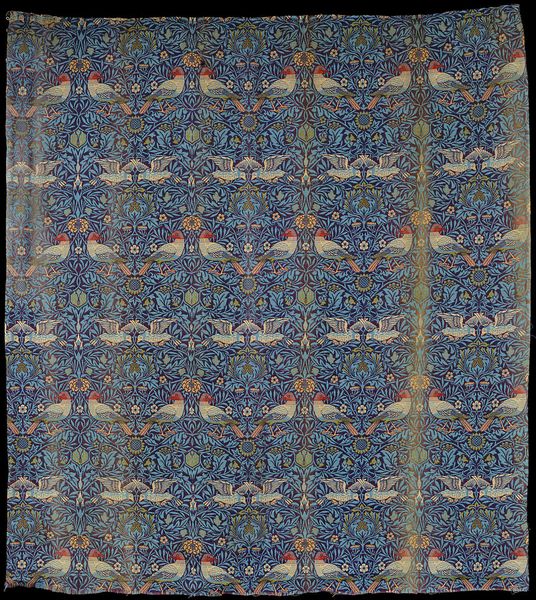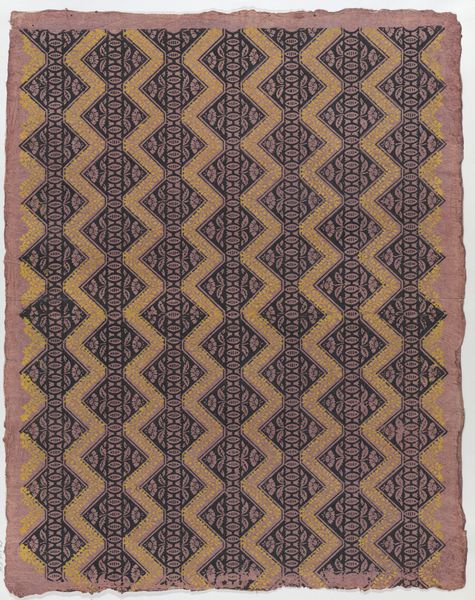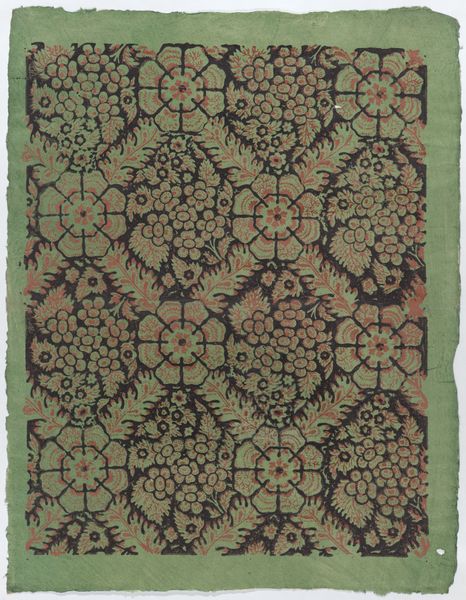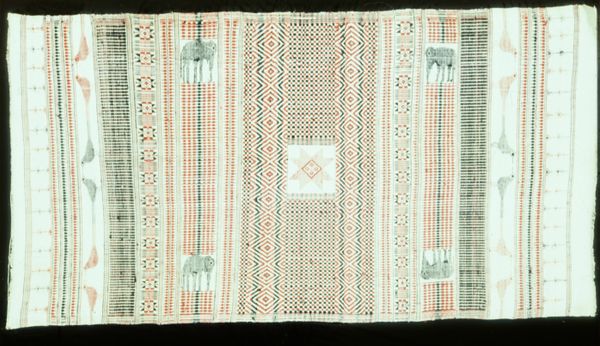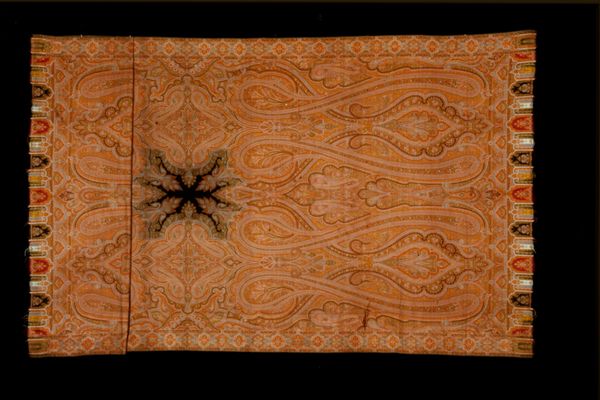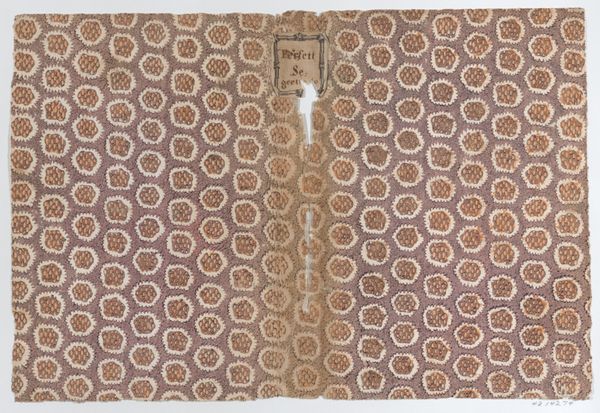
fresco
#
pattern heavy
#
tiling design
#
natural stone pattern
#
pattern
#
ancient-egyptian-art
#
animal print
#
fresco
#
geometric pattern
#
tile art
#
geometric
#
ancient-mediterranean
#
repetition of pattern
#
vertical pattern
#
pattern repetition
#
layered pattern
Copyright: Public domain
These Ancient Egyptian painted decorations are composed of stylized geometric patterns. The rhombus shapes, often framing a cross, emerge as dominant symbols. In ancient Egypt, these motifs were not merely decorative; they often symbolized protection, life, and regeneration, frequently adorning tombs and sacred spaces. These geometric forms echo through time. We see related diamond patterns, and cruciform designs in Minoan pottery, and later in Roman mosaics. The diamond, a shape of enclosure and containment, can be associated with the womb. Within it, the cross, a symbol weighted with life and sacrifice. Such patterns tap into what we might call a collective unconscious. The recurring impulse to delineate space with simple yet profound geometric forms speaks to the underlying human need for order, protection, and the marking of sacred territories. These cultural symbols offer a glimpse into the ways humanity has sought to give form to our deepest fears, hopes, and existential longings.
Comments
No comments
Be the first to comment and join the conversation on the ultimate creative platform.
